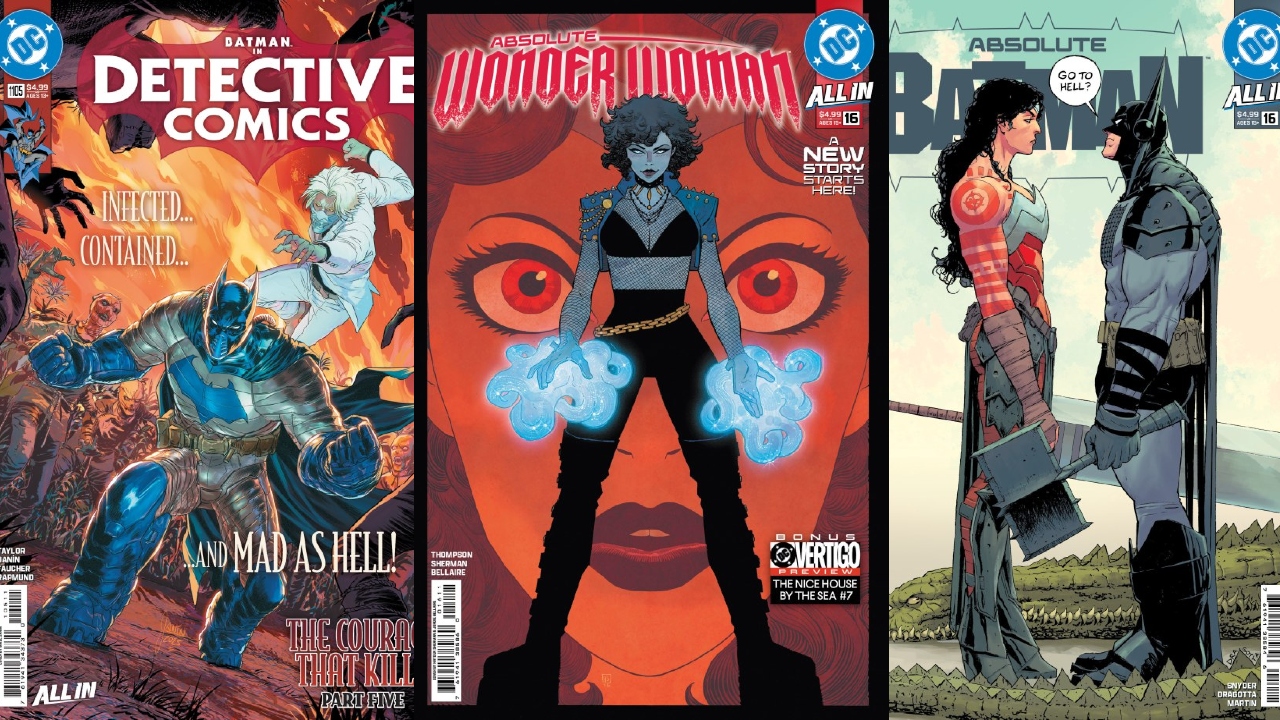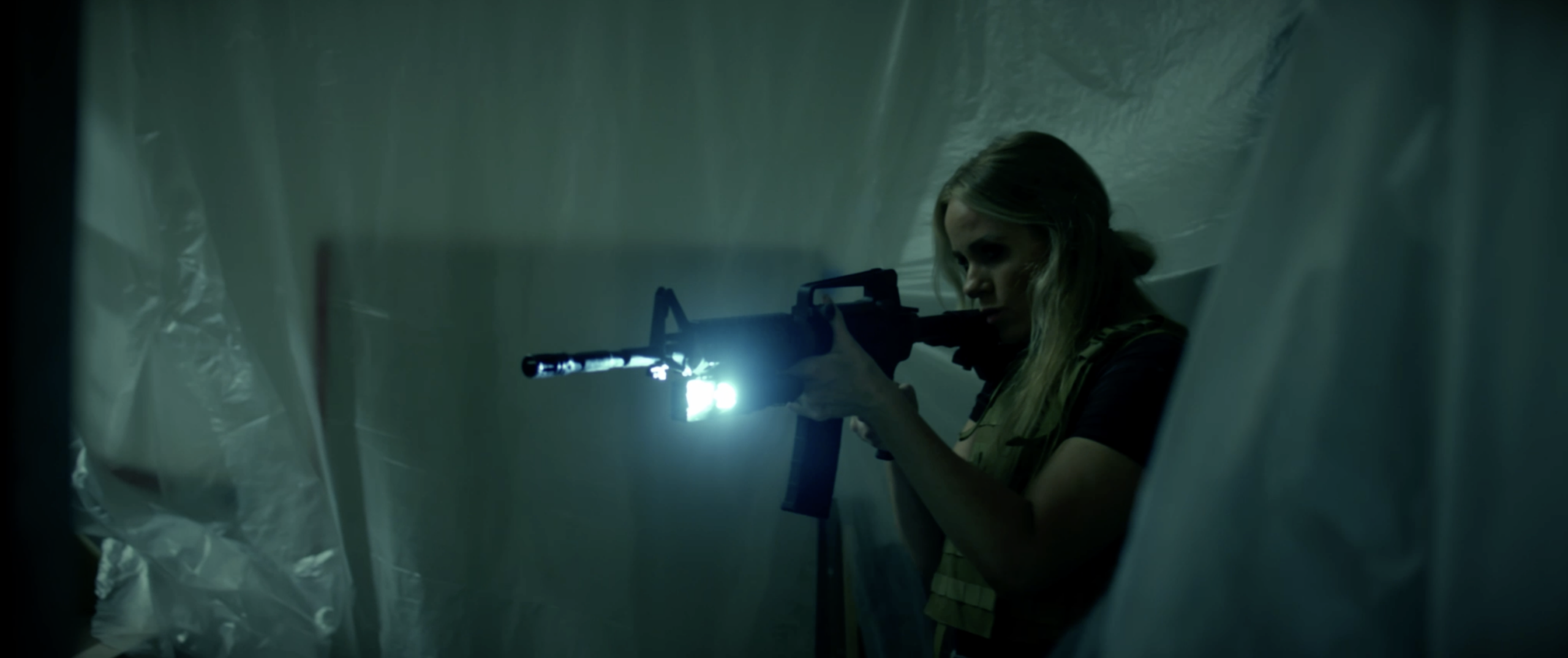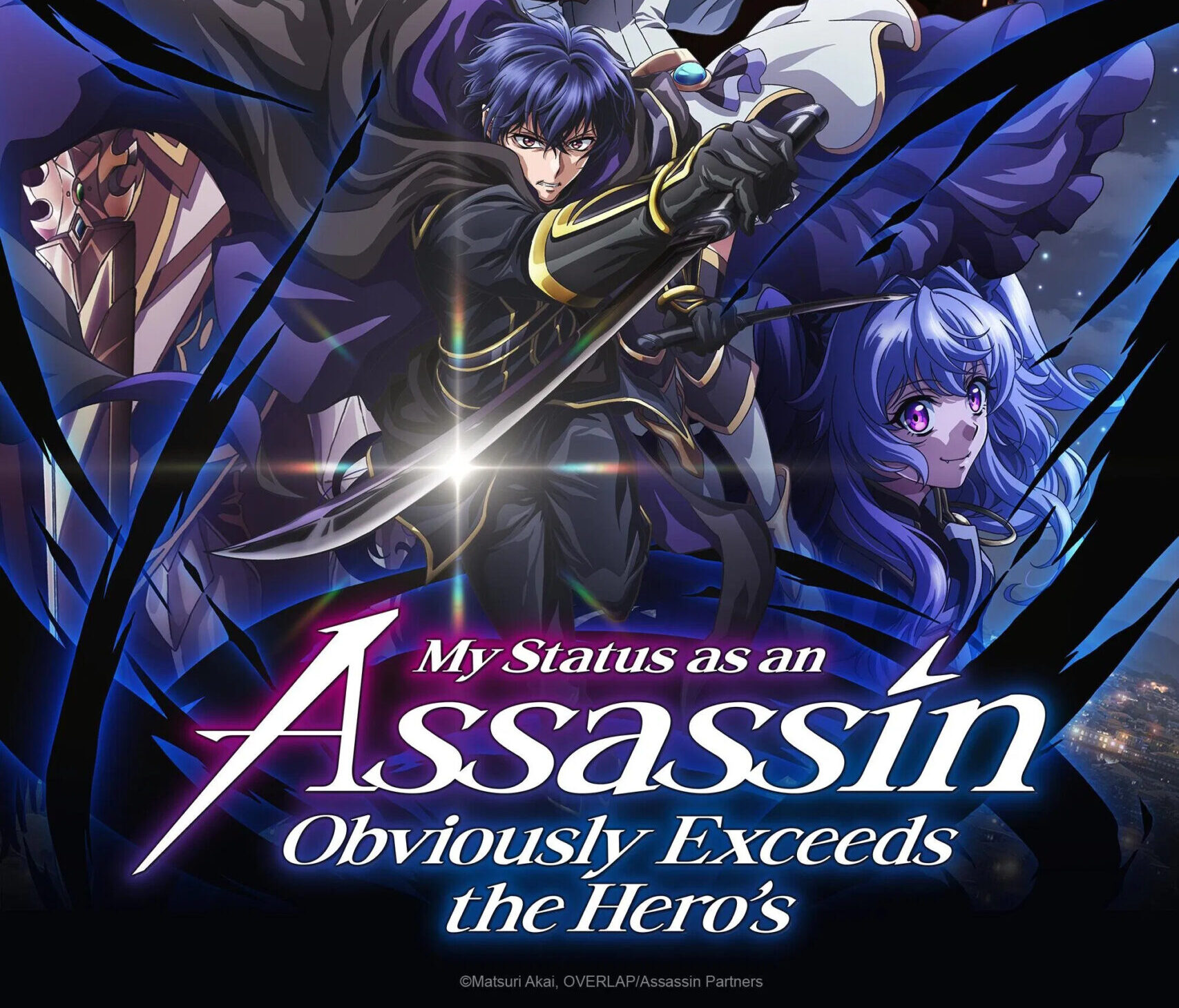![]()
There are so many actors that are huge stars in France but whom haven’t really made much of an impact here outside the arthouses. French actress Isabelle Huppert is definitely one who is greatly appreciated by anyone who has had a chance to watch her amazing work with filmmakers like Michael Haneke and others.
Huppert’s exposure is certainly being elevated this year with her starring roles in two very different French films, Elle, a revenge thriller from director Paul Verhoeven based on Phillippe Djian’s book, and Mia Hansen-Løve’s Things To Come, a lighter character drama, both which have been on the festival circuit since February.
In Elle, Huppert plays Michèle Leblanc, the owner of a video game company who is sexually assaulted in her apartment, who proceeds to try to track down her attacker for revenge, while in Things to Come, she plays Nathalie Chazeaux, a philosophy teacher, trying to cope with her husband leaving her by taking advantage of her newfound freedom. In both cases, Huppert gives absolutely fantastic performances that proves why she’s so in demand from filmmakers from all across the globe.
LRM had a chance to sit down with Ms. Huppert to talk about the two amazingly divergent films in which she stars this year.
LRM: it’s interesting to see you working with Paul Verhoeven. He returned to Europe a few years ago and it’s really surprising to me that he would do a French film with one of France’s top stars.
Isabelle Huppert: The good surprise is that it’s really a French film, so you forget about the fact that Paul is half-Dutch, half-American, culturally at least. He’s typically Dutch, but having spent most of his life in America. He really emerged himself completely in the French atmosphere and the French language, too. He spoke French before starting the film, because I think he studied in France at some point in his life, but still, he wanted to speak really good French, so he had intensive courses before starting the film. He didn’t want any language barrier with the crew whatsoever and with the cast, and he wanted to speak French, and that’s what he did actually. He spoke very good French. I understood it all, understood the least little nuance that was said, so it was, in that respect, completely French.
LRM: What was the first knowledge of the film or your character Michel?
Huppert: I read the book first, and I met Djian, the writer, who I know, and Philippe said that while he was writing the book, he was having me in mind. I don’t know if that’s true, but that’s what he said. And then Saïd Ben Saïd bought the rights to the book, and he started looking for a director, and then had this genius idea to ask Paul Verhoeven to do the film, which I thought was a brilliant idea. There is something in common between Djian’s universe and Verhoeven’s universe I would say. The same kind of being on the razor’s edge all the time, kind of provocation or a bit disturbing for people and things like this, and so it was the perfect match.
LRM: In Paul’s other movies, he’s had rape scenes, which were deemed controversial, but this is the first one where we follow the victim and watch her do something about it.
Huppert: That’s right, because she is a victim. She doesn’t want to be the classical victim. She doesn’t want to be the social victim or the public victim, like going to the police and making her self known as a victim. But she is a victim and she considers herself as a victim, and she has a plan and she wants to do it her own way, and she wants to escape all caricatures of herself as a woman would normally be, as a victim. She could also be, not publically but privately, the classic avenger taking the gun and shooting the guy. She doesn’t want to be that either. I’m not sure she knows exactly what she wants to do, but certainly, intuitively, she knows what she doesn’t want to do. At some point, we have to admit, especially when the rapist unmasks, she obviously knows who she is and then starts a very strange game between the two of them. That leads her into something that at the end of the day, you can call “revenge,†because there is a notion of punishment. It’s essential in the course of the events, otherwise, not only about what happens, but as she does all over the film, meaning not bearing any emotional reaction to whatever happens to her. At that moment, she either doesn’t bear any emotional reactions, which means that she might have had a very secret and strange relation to that man, but deep inside, you can say that it played on a certain level but not on a very deep level. Let’s just say she didn’t fall in love with him. She doesn’t care for him, but there is a strange connection at some point between the two of them.
![]()
LRM: Are you surprised that this sort of material can come from men writing and directing? Michèle is such a layered character, which might surprise some that the book and screenplay were written by men.
Huppert: No, I was not surprised, but it’s true to say that Philippe Djian in the first place and then after him, Paul Verhoeven, literally liked to step into this woman’s life, so no, I wasn’t surprised. Its not an issue I come up with… why wasn’t it written by a woman? The fact and truth of it is that it was written by a man, and it came out of a man’s imagination, but it doesn’t mean anything for me.
LRM: It’s just surprising when you see so many layers to a female character that one can’t imagine a man could understand…
Huppert: That’s right, yes. That’s what’s really interesting. Also, I like to say that it’s also a comedy because I’ve heard a number of times that it is a comedy, so saying it is a comedy that it is only a comedy, so I like to say it’s ALSO a comedy.
LRM: It has comic moments, sure.
Huppert: That’s right, so does not exclude the other layers, which are so important. Layers of depth, insight, there are so many things being said about this person, about this life. Her life has so many threads between the present and the past—the son, the mother, the lover the ex-husband, the cat also, the best friend…
LRM: The relationship with the son may be the most comic because we watch the movie expecting her to say something to the son, but she’s dealing with all these things in her life while still trying to get over the attack.
Huppert: Yeah, but I like her honest the son. You feel that she loves the son no matter what, because that’s her son and she won’t let him down, but on the other hand, yes, it’s very moving when she does that scene with the nurse outside the hospital. I love whatever the film says about family ties, about transmission goes or doesn’t go. What does it mean to be the mother of your son? What does it mean for the father not to be the father of his son, because this baby isn’t his son? What does it mean for her to be the daughter of that serial killer? It’s very interesting what it says about family ties and heritage.
![]()
LRM: Watching it reminded me very much of the work of Michael Haneke, who you’ve worked with many times, where he can create those characters.
Huppert: There is some things in common. Not in the manner. Cinematographically, they’re very different directors, but in terms of how they approach the story with the same kind of freedom, and not trying to idealize a character but just to try to show someone with as many angles as possible, to the risk that this person could be controversial, but there’s this kind of honest with both of them.
LRM: You also star in Mia Hansen Love’s new film “Things To Come†so did you do that before or after “Elle�
Huppert: Just right after, because we shot Elle in Winter, and that’s palpable in the film because it’s all grey, all the exteriors, you can tell that it’s winter time, and then we shot Things to Come in summer. We started in June and ended in August, and it was beautiful light, and she needed that light.
LRM: What was it like working with Mia? She’s a younger filmmaker…
Huppert: Oh, she’s a lot younger.
LRM: But she’s made three fantastic movies in a row now after “Eden†and “Goodbye First Love.â€
Huppert: Yes, she’s extremely talented and was a great joy for me to work with her. When you look at her, and she looks like a little girl or a big little girl because she’s very tall, but she’s very young and yet she has this incredible knowledge about mis-en-scene and what it means to be a great director. She’s really a very bright young director, and the movie carries such a profundity, because she also talks about subject matters which are so deep and not superficial, and she does it with such grace.
LRM: But Nathalie is another great character…
Huppert: It is.
LRM: It was really interesting to see her write a character like this so what struck you about Natalie’s story.
Huppert: There was a lot in common between the two characters, strangely enough, even though one runs a video game company, and the other one is very much defined by the fact that she’s a philosophy teacher, but beyond this, they’re both women who want to escape the normal, predictable pattern in which they would fall normally. They’re both abandoned wives, although she reacts in a different way. She finds in herself the strength for that. Initially, I’m not so sure it’s easy for her. Of course, she’s devastated, but very quickly—whether it’s pride or sense of being matter of fact—he leaves her, and there’s no need to beg or burst into tears or whatever. She’s also pragmatic, maybe because she’s a philosophy teacher. She knows what it means in reality. But from then on, she finds, to her own surprise I would say—it’s not like she wakes up one morning. One day, I love that line when Nathalie is in the car with that young student, she says—because she has a sense of irony and humor like the character in Elle, who is able to have this healthy distance from what happens to her. All of a sudden, Nathalie says, “My husband left me, my mother died, my children left the next—I’ve never been so free!†She doesn’t say, “I’ve never been so happy,†but no, she says, “I’ve never been so free.†That’s a wonderful discovery for her. Also, because, maybe she’s a philosophy teacher, so that certainly helps her to be sensitive to beauty. She finds enough resources in her to deal with that situation.
LRM: With characters like these, are pretty much in the script they give you that you know what needs to be done, or do you spend a lot of time talking to the directors beforehand?
Huppert: No, in both cases, the scripts were very, very complete, very rich, and Elle’s case, plus you had the book. Even though the script is very similar to the book, a book gives you such a great variety of material, but in the case of L’Avenir (original French title for Things to Come), the script was just perfect and the dialogue was very good, too. So no, there wasn’t very much to ask for more. It was all there.
![]()
LRM: You’re obviously one of the busier actors in France because you sometimes do 3 or 4 movies a year…
Huppert: It depends. Sometimes.
LRM: I feel like some of your peers like Juliette Binoche and Charlotte Gainsbourg have come to America and very recently gotten more involved in Hollywood movies. Does that interest you at all or do you have enough work in France?
Huppert: No, I’m not trying to be involved… I’m just curious and in that sense, there’s nothing that you can never really make happen, it isn’t happening. I’m very philosophical about that. I’m happy enough to have a few very good occasions to work in France and outside of France, but not necessarily in America, but everywhere else in the world like working with Hong San-soo in Korea or Brillante Mendoza, who is in Philippines, or even with Joachim Trier, the Norwegian director, even though the movie (Louder than Bombs) was being shot in America.
LRM: And you’re doing another movie with Michael Haneke?
Huppert: Yes, we just finished this movie called Happy Ending—no, now it’s called Happy End—about this family living not far from where the migrants are, but obviously having very little concern about the migrants. So everybody thinks it’s about the migrants, but it’s precisely not about the migrants.
LRM: What’s it like working with him, since you’ve done so many films with him? Is it easier to work together and communicate?
Huppert: Yes and no, but this film was different. Each film that I’ve been doing with Michael has been different, but this one again was very different because it involved a lot of people, so it was completely different from Amour for example or obviously from The Piano Teacher, so yes, of course. We’re close, because having done four movies together, we know each other, but a movie is always an eternal beginning, whatever it is. Even if you know somebody very well, it’s always different.
LRM: But even in a case like “Elle,†you do all the filming and then Paul goes off and edits it, so do you still get surprised when you see finished movies how they’ve been edited together, even knowing the script?
Huppert: Well, when you see a movie for the first time, especially a movie like this when you’re so much the pivotal… when everything revolves around your character, it’s always a special time when you see the movie for the first time. You have to see it twice to really appreciate the film, because in the first place, you don’t have an objective view of the film, I think.
LRM: Right, because you’re watching yourself on screen…
Huppert: Yeah, but not only that but I don’t know, but you confront yourself with something that you would not necessarily expect. Yeah, it’s the first step that you have to take and then you have to watch it a second time to really appreciate it, I think.
Elle is now playing in select cities while Things To Come will open in select cities this Friday. You can also read our interview with Elle director Paul Verhoeven below.
 FOR FANBOYS, BY FANBOYS
Have you checked out LRM Online’s official podcasts and videos on The Genreverse Podcast Network? Available on YouTube and all your favorite podcast apps, This multimedia empire includes The Daily CoG, Breaking Geek Radio: The Podcast, GeekScholars Movie News, Anime-Versal Review Podcast, and our Star Wars dedicated podcast The Cantina. Check it out by listening on all your favorite podcast apps, or watching on YouTube!
Subscribe on: Apple Podcasts | Spotify | SoundCloud | Stitcher | Google Play
FOR FANBOYS, BY FANBOYS
Have you checked out LRM Online’s official podcasts and videos on The Genreverse Podcast Network? Available on YouTube and all your favorite podcast apps, This multimedia empire includes The Daily CoG, Breaking Geek Radio: The Podcast, GeekScholars Movie News, Anime-Versal Review Podcast, and our Star Wars dedicated podcast The Cantina. Check it out by listening on all your favorite podcast apps, or watching on YouTube!
Subscribe on: Apple Podcasts | Spotify | SoundCloud | Stitcher | Google Play



